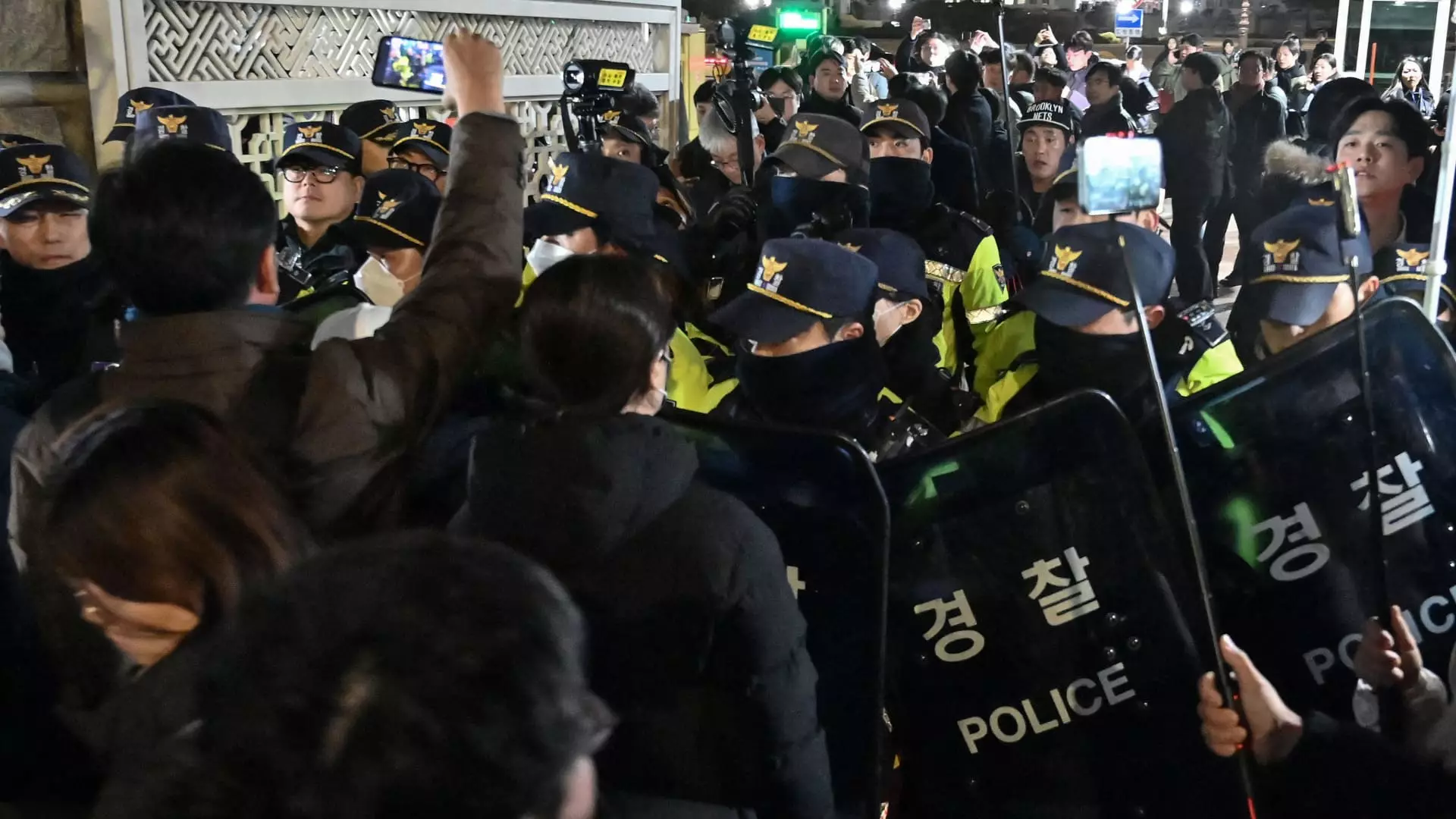On Tuesday, the South Korean stock market felt the immediate effects of President Yoon Suk Yeol’s alarming decision to invoke emergency powers and declare martial law. This historic and unprecedented move, reminiscent of South Korea’s politically turbulent past, unleashed chaos, reflecting deep-seated fears among investors regarding the stability of the nation’s economy, which ranks as the 13th largest worldwide. The iShares MSCI South Korea ETF, a significant barometer for large-scale enterprises in the region, plummeted to a staggering 52-week low. Although it managed to recover slightly, the initial drop of nearly 7% demonstrated the market’s rapid reaction to political uncertainty.
Political Response and Market Reactions
The swift legislative response was noteworthy. Early Wednesday morning, within hours of the martial law announcement, a substantial majority of the South Korean National Assembly convened to overturn Yoon’s decree, reflecting a robust opposition to the president’s controversial actions. This rapid legislative movement underscores the potential pushback against measures perceived as threats to democratic integrity. Stocks tied to major South Korean firms followed a downward trajectory; Korea Electric Power’s American Depositary Receipts (ADRs) fell 5%, while e-commerce leader Coupang saw a loss of 6%. Other key players like KT Corporation and Posco also experienced significant declines, further emphasizing the widespread impact of governmental instability on the corporate sector.
President Yoon’s unilateral declaration of martial law marked a significant moment in South Korea’s political landscape, being the first such declaration since 1980. The decision to impose military oversight during alleged national emergencies raises questions about governance, civil liberties, and the country’s commitment to democratic principles. Yoon’s assertion that opposition parties are hampering governance by sympathizing with North Korea adds an additional layer of political tension, as it not only polarizes the political climate but also poses risks to investor confidence. Under the current declaration, all political activities perceived as disruptive are banned. This authoritarian approach is likely to stoke fears of repression and civil unrest, which could lead to prolonged negative impacts on the market.
The Korea Exchange’s announcement of an emergency meeting signifies the urgency with which it is addressing the market’s reactions to the martial law declaration. This situation compels investors to reconsider their positions in South Korea’s markets, knowing that the financial implications of such a political environment can lead to volatility and loss of confidence in long-term investments. Moreover, with the U.S. dollar appreciating against the South Korean won, international investors may be deterred from entering or staying in this market until political stability is restored.
As South Korea navigates this precarious moment in its political and economic history, the ramifications of President Yoon’s emergency powers will be closely monitored by both domestic and international stakeholders. The swift legislative actions by the National Assembly offer a glimmer of hope for restoring democratic normalcy, but until there is clarity on the stability of governance, the potential for further market turmoil remains high. The situation serves as a stark reminder of how intertwined politics and economic factors can drastically reshape the landscape for investors and citizens alike in an increasingly complex world.

